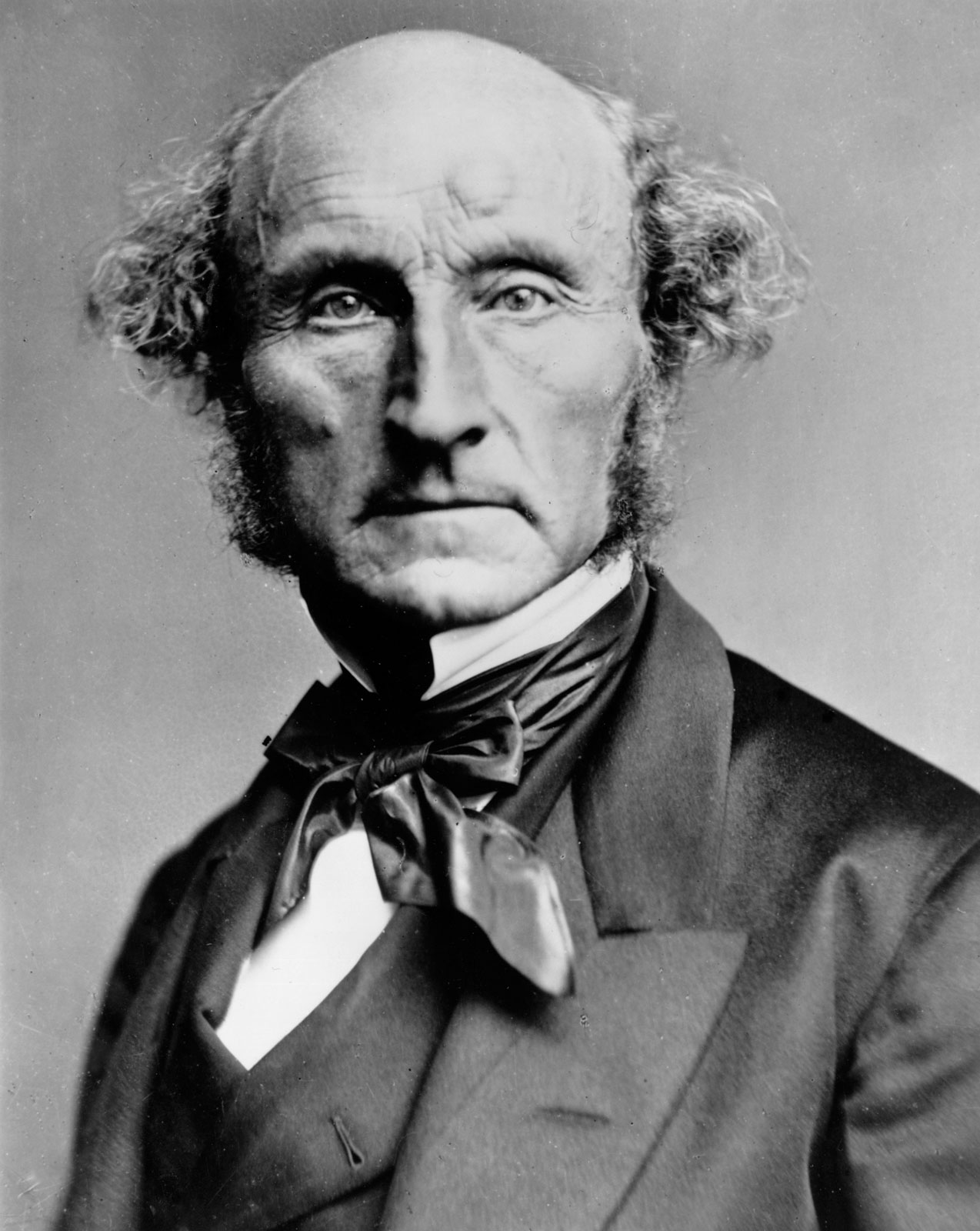Fuente: Sobre la Libertad.
Frases célebres de John Stuart Mill
“El valor de una nación no es otra cosa que el valor de los individuos que la componen.”
Fuente: Paráfrasis de Lógica -A system on Logics-, 1843)
Frases de vida de John Stuart Mill
“Los principales elementos que integran una vida satisfecha son dos: la tranquilidad y el estímulo.”
Fuente: El Utilitarismo, capítulo 2: «¿Qué es el utilitarismo?».
John Stuart Mill Frases y Citas
“No importa si no es más bello o si no conviene, el cambio se hace por el cambio mismo.”
Fuente: Sobre la Libertad.
“Al estudiante que nunca se le pide que haga lo que no puede, nunca hace lo que puede.”
Original: «A pupil from whom nothing is ever demanded which he cannot do never does all he can».
Fuente: Mill, John Stuart. Autobiography. Editorial Simon and Schuster, 2013. ISBN 9781627936248.
Fuente: Childhood and Early Education, capítulo 1.
Fuente: Principios de Economía Política, p. 199.
Fuente: El Utilitarismo, capítulo 2: ¿Qué es el utilitarismo?.
“Todo ser humano debidamente educado siente un sincero interés por el bien público.”
Fuente: El Utilitarismo.
Fuente: Sobre la Libertad.
Principles of Political Economy: And Chapters on Socialism
Fuente: Public and Parliamentary Speeches, 31, May, 1866.
John Stuart Mill: Frases en inglés
Fuente: Autobiography (1873)
Fuente: https://archive.org/details/autobiography01mill/page/77/mode/1up pp. 77-78
Fuente: https://archive.org/details/autobiography01mill/page/50/mode/1up pp. 50-51
Fuente: https://archive.org/details/autobiography01mill/page/49/mode/1up pp. 49-50
Fuente: Autobiography (1873)
Fuente: https://archive.org/details/autobiography01mill/page/48/mode/1up p. 48
Fuente: Autobiography (1873)
Fuente: https://archive.org/details/autobiography01mill/page/46/mode/1up p. 46
Fuente: Autobiography (1873)
https://archive.org/details/autobiography01mill/page/41/mode/1up pp. 41–42
Fuente: Autobiography (1873)
https://archive.org/details/autobiography01mill/page/36/mode/1up pp. 36–37
Fuente: Autobiography (1873)
https://archive.org/details/autobiography01mill/page/33/mode/1up pp. 33–34
Fuente: Autobiography (1873)
https://archive.org/details/autobiography01mill/page/30/mode/1up pp. 30–31
"Civilization," London and Westminster Review (April 1836)
Fuente: Autobiography (1873)
https://archive.org/details/autobiography01mill/page/40/mode/1up p. 40
Fuente: Autobiography (1873)
https://archive.org/details/autobiography01mill/page/34/mode/1up p. 34
Fuente: Autobiography (1873)
https://archive.org/details/autobiography01mill/page/30/mode/1up p. 30
cannot be answered, because we have no experience or authentic information from which to answer it; and that any answer only throws the difficulty a step further back, since the question immediately presents itself, “Who made God?”
Fuente: Autobiography (1873), Ch. 2: Moral Influences in Early Youth. My Father's Character and Opinions.
'Long before I had enlarged in any considerable degree, the basis of my intellectual creed, I had obtained in the natural course of my mental progress, poetic culture of the most valuable kind, by means of reverential admiration for the lives and characters of heroic persons; especially the heroes of philosophy.'
Autobiography (1873)
That a thing is unnatural, in any precise meaning which can be attached to the word, is no argument for its being blamable; since the most criminal actions are to a being like man not more unnatural than most of the virtues.
Fuente: On Nature (1874), p. 102
Fuente: Autobiography (1873)
Fuente: https://archive.org/details/autobiography01mill/page/233/mode/1up pp. 233-234
pages 176-177; Early Modern Texts page 16
Three Essays on Religion (posthumous publication), Theism, Part II: Attributes
“landlords... grow richer, as it were in their sleep, without working, risking, or economizing."”
Book 5, Chapter 2, Section 5
Principles of Political Economy (1848-1871)
“I generally answered to myself, that I did not think I could possibly bear it beyond a year.”
Autobiography (1873)
Book V, Chapter 11, Section 9
Principles of Political Economy (1848-1871)
Autobiography (1873)
Contexto: What we principally thought of, was to alter people's opinions; to make them believe according to evidence, and know what was their real interest, which when they once knew, they would, we thought, by the instrument of opinion, enforce a regard to it upon one another. While fully recognizing the superior excellence of unselfish benevolence and love of justice, we did not expect the regeneration of mankind from any direct action on those sentiments, but from the effect of educated intellect, enlightening the selfish feelings.
